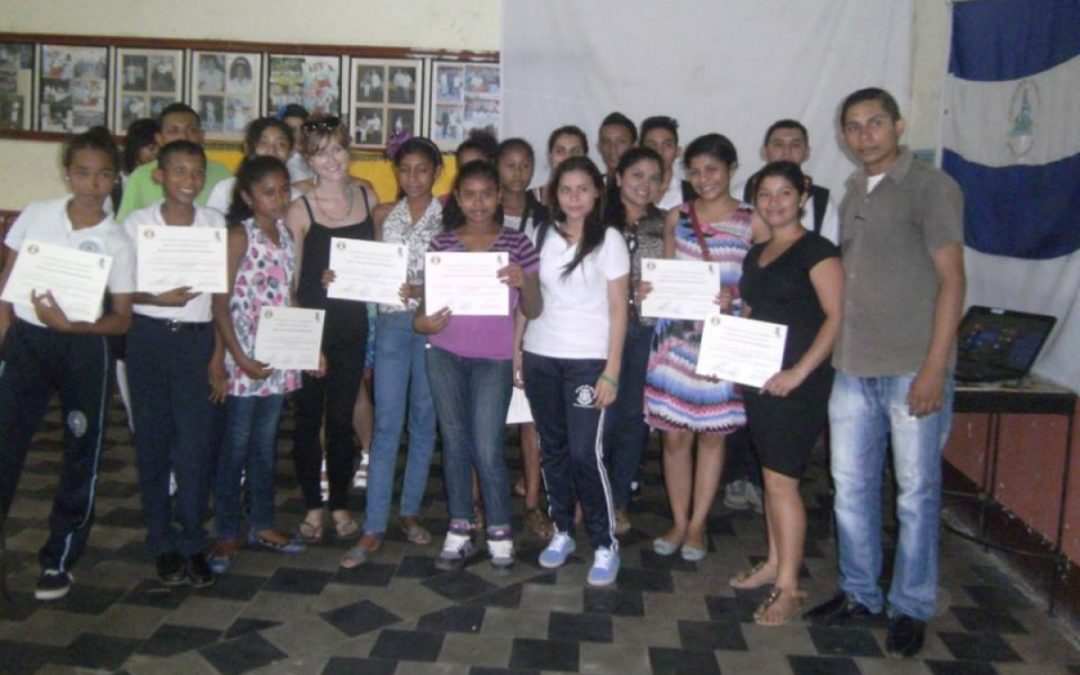She received her MA in Public Issues Anthropology and International Development Studies at the University of Guelph. Jenny is passionate about creating positive, engaging, educational, supportive environments for youth to help them achieve their full potential!
During my Masters research in 2013-2014, I went to Nicaragua to work with a national youth organization, Movimiento Comunal Nicaraguense (MCN). Nicaragua was experiencing far less youth violence compared to its neighbouring countries, so I went to see what they were doing differently. While there, I learned the great importance of supporting, empowering, respecting, and providing opportunities for youth.
To deter youth from more destructive paths, which, in Central America, usually meant joining gangs, the members of MCN believe in providing youth with both formal and informal education, providing recreational activities, and of much importance, providing them with emotional and social support. If youth have access to opportunities, have an identity, have a sense of purpose and belonging, then they will feel more confident and secure, and won’t seek out those things in a gang.
In addition to this, I learned how important it is to approach and perceive youth as capable individuals, and independent decision makers. They have strengths, abilities, and assets of their own. Their skills may need to be fostered, but we should be focusing on the skills they have, and not those they lack. They should not be told what to do, how to live, and their decisions do not need to be made for them. MCN members believe in guiding the youth, yes, but most of all empowering them to learn to make decisions on their own and to be conscious, engaged, active citizens in their community.
Focusing on the strengths and assets of youth has been acknowledged in the North American context as well, and can be seen in Positive Youth Development approach. This approach reinforces the importance of formal and informal education, fostering youth agency, and developing supportive, meaningful relationships and is recognized as applicable in a cross-cultural context.
When working with youth then, no matter the location, we should be doing just that – working with them (not for them), guiding them, and encouraging them to be leaders, decision makers, and actors, independently of adults. Community agencies working with youth should certainly be the allies of youth, but this can be done through supporting them, and by fostering their ideas and involvement in the community.
These agencies should provide programs of interest to youth, that encourage them to be involved, engaged, and inspired. And, they should provide youth with a supportive community and sense of belonging. By doing so, the youth will not be forced to find that community elsewhere – which could ultimately lead to more dangerous scenarios for the youth, and the community at large.
When it comes to building programming for youth, we need to listen to what the youth want, what they would benefit from, and how we can achieve that, practically. Let the youth, the beneficiaries of these programs, be part of that process. Not only will this lead to more effective youth programming, but it will provide the youth with more opportunities for engagement and experience, as well as the chance to work on projects that affect them directly.






